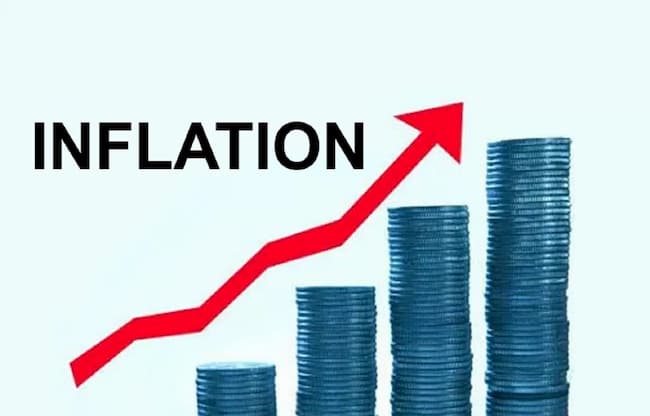- FG to keep rate at 11.95% In 2021
The plans put in place by the Federal government to reduce the rising inflation in the country have been described by experts as suboptimal.
The country is planning to keep inflation rate stable at 11.95 per cent by the end of 2021 after failing to return the rate to single digit.
The government hopes to control the indices affecting food prices this year by reducing the cost of transporting goods from the farm to the market, the Minister of Finance, Budget and National Planning, Mrs Zainab Ahmed, said during the virtual presentation of the 2021 budget on Tuesday.
Nigeria’s inflation rate rose to a three-year high of 14.9 percent in November last year from 14.2 percent in October 2020, data from the National Bureau of Statistics stated.
READ ALSO: FG To Sanction MDAs For Failure To Meet Revenue Target
The country food inflation rate rose on the back of dollar shortages, insecurity in farming areas and supply shortfalls caused by inadequate farm output.
Ahmed said the Finance Act 2020, passed into law by President Muhammadu Buhari in December, had revised downward the import duty on tractors from 35 per cent to five per cent and introduced a reduction in levy for mass transit vehicles for transport of more than 10 persons and trucks from 35 per cent to 10 per cent.
The government also approved the reduction of import levy on cars from 30 per cent to five per cent.
These incentives, according to Ahmed will reduce the cost of transportation of food items, making them affordable for majority of Nigerians.
She added that the government was also working with the monetary authorities to improve consumer prices.
Address exchange rate depreciation, insecurity – LCCI
The Director-General, Lagos Chamber of Commerce, Dr Muda Yusuf, acknowledged that the cost of transportation was a significant factor contributing to Nigeria’s rising inflation rate and commended the government for the reduced import levy for vehicles and trucks.
READ ALSO: Exporters Bemoan CBN’s Pre- export Requirements
However, he said factors affecting prices such as logistics, exchange rate and insecurity needed to be addressed.
“Therefore, steps taken to reduce the cost of vehicles should be commended. However, there are many other variables impacting domestic prices,” the DG said.
“These factors include logistics challenges, exchange rate depreciation, forex liquidity issues, VAT increase, climate change, insecurity in many farming communities and structural bottlenecks to production.
These are essentially supply-side issues. Any mitigation measures would have to be situated in the context of these variables. Even the Central Bank of Nigeria had admitted that the potency of monetary policy instruments in tackling inflation is weak.
According to Yusuf, mounting inflationary pressures weaken purchasing power of citizens as real incomes are eroded.
He added that high inflation rate accentuate pressure on production costs, negatively impacts profitability, and undermines investors confidence.
The CBN has in recent months focused on boosting growth to improve output and moderate inflation. With the imminent recession, this is perhaps an appropriate policy choice. For an economy seeking to quickly recover and create jobs, monetary policy tightening is not an option.
Subsidise farming, economist advises govt.
A Professor of Economics at the Olabisi Onabanjo University, Prof. Sheriffdeen Tella, urged government to subsides farm input to ensure farmers have the maximum farm output when they harvest their crops.
According to him, not every stakeholder in the food production value chain will benefit from the reduced levy on imported vehicles.
Tella advised the government to consider extending the levy reduction on imported spare parts to enable affordable maintenance of old vehicles conveying farm produce.
The economist stressed the importance of good road networks across the country to making transport and logistics convenient.
“We have to make sure the roads are good and make sure price of fuel is not increased unnecessarily. I think the inflationary rate can reduce if the government provides subsidy to farmers and if import levy of vehicle spare parts is reduced,” he added.
Auto makers demand reversal of reduced levy
The Automotive Manufacturers Association have also demanded an immediate reversal of policy on imported vehicles.
The Chairman, PAN Nigeria Limited, Wadada Aliyu; Chairman, NAMA, Tokunbo Aromolaran, and other stakeholders accused the Comptroller-General of Nigeria Customs Service, Hameed Ibrahim Ali, of misinforming the government.
According to Aliyu, Ali gave wrong statistics about the automobile industry and subsequently got FEC’s approval for tariff review on importation of used vehicles, popularly called tokunbo.
He described the tariff reduction as policy somersault as many assembly plant operators were idebted to Nigerian banks to the tune of over N100bn.











